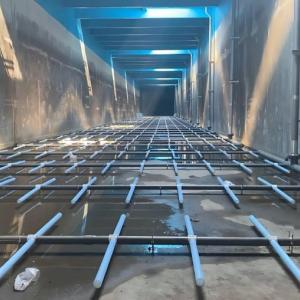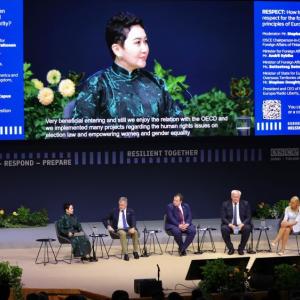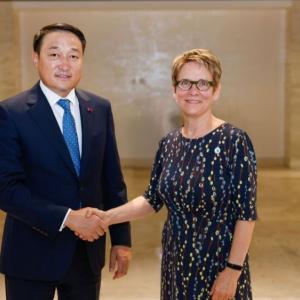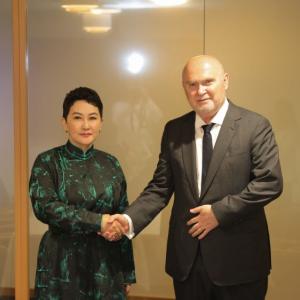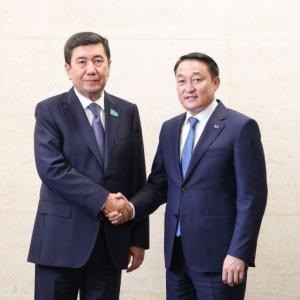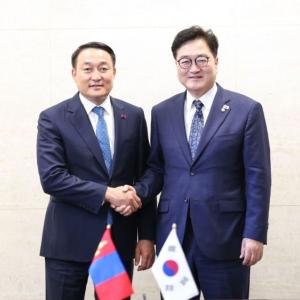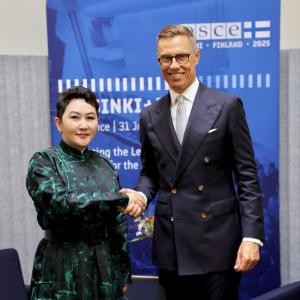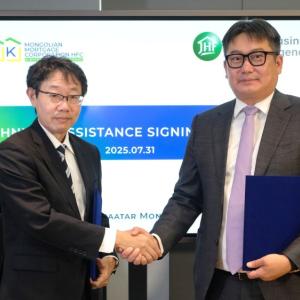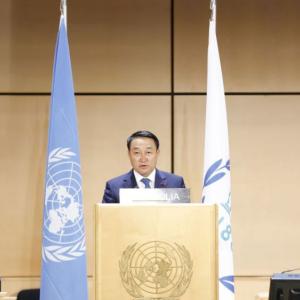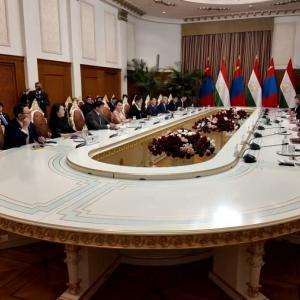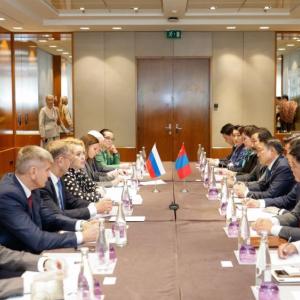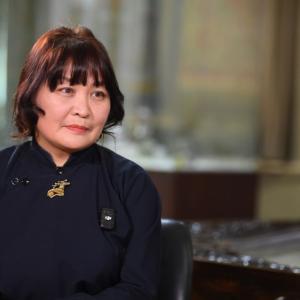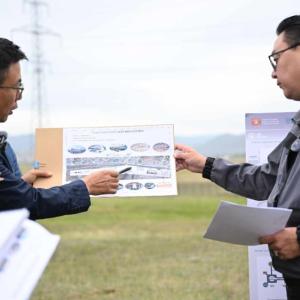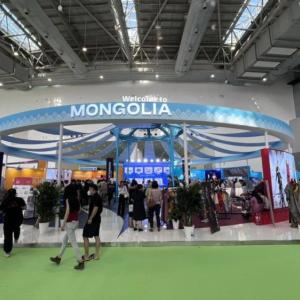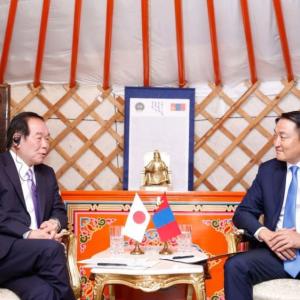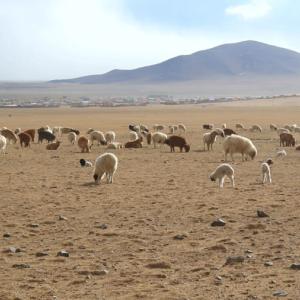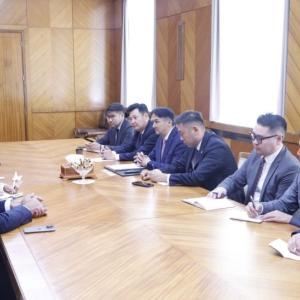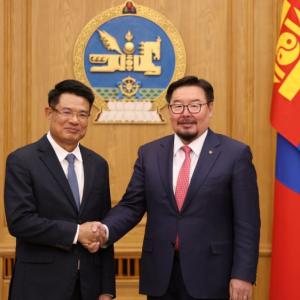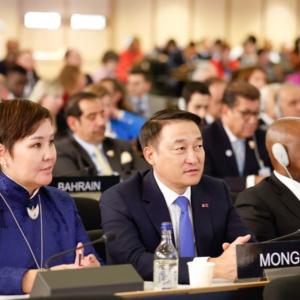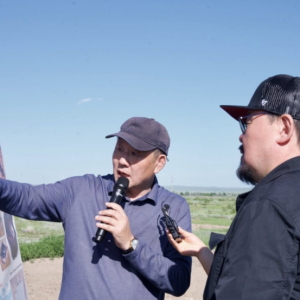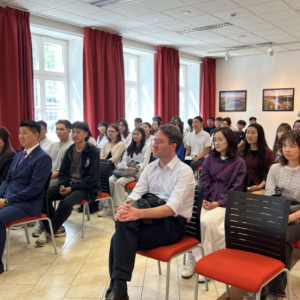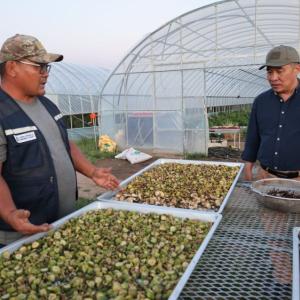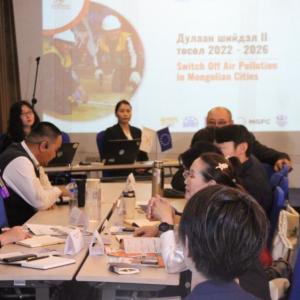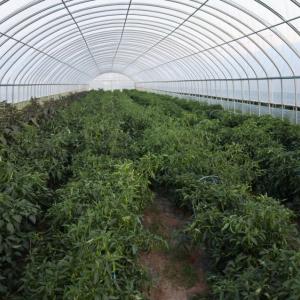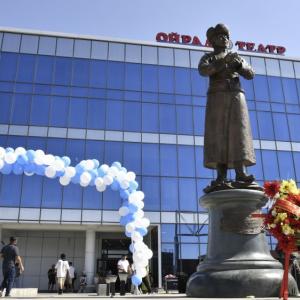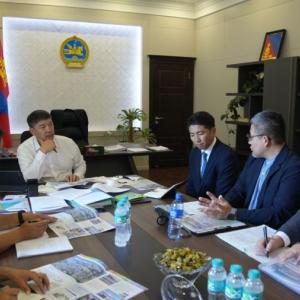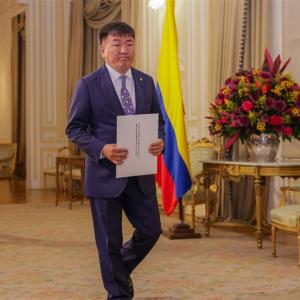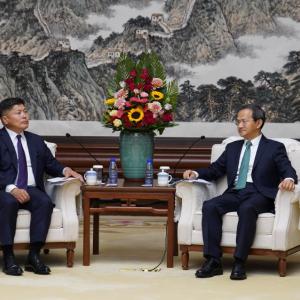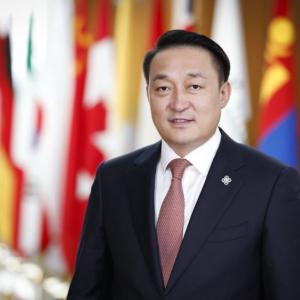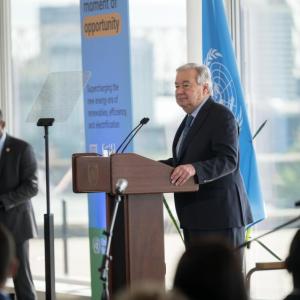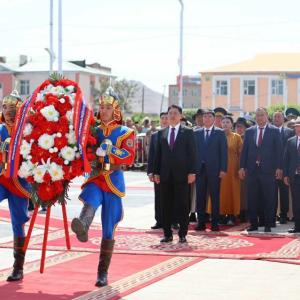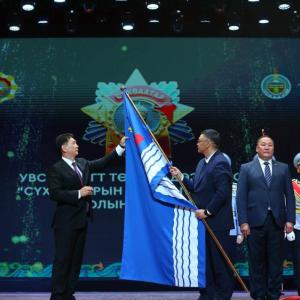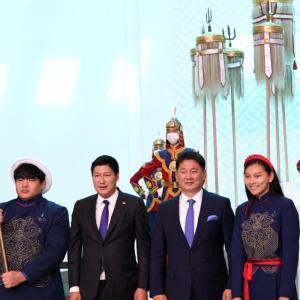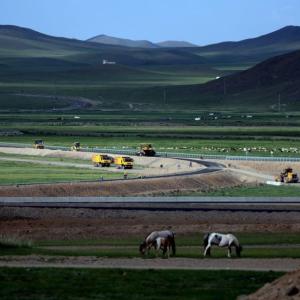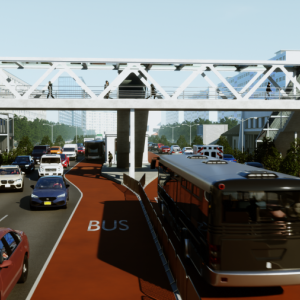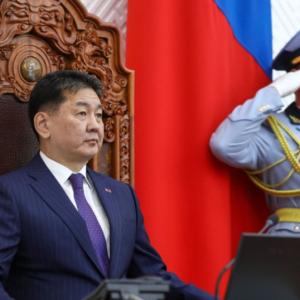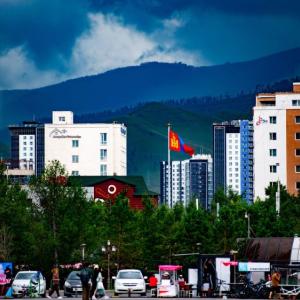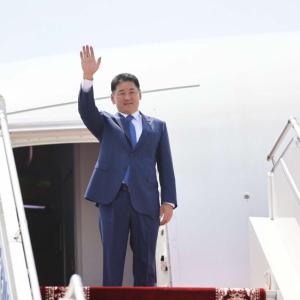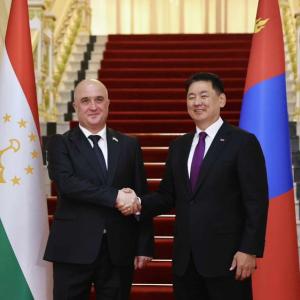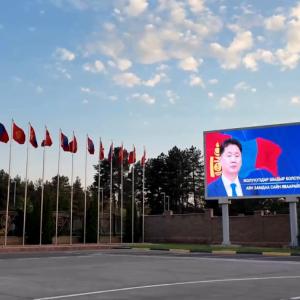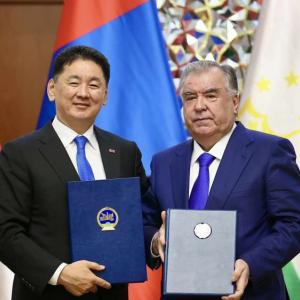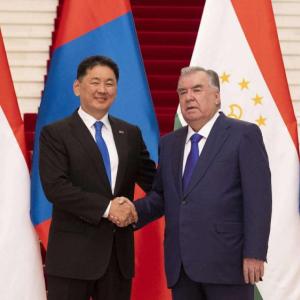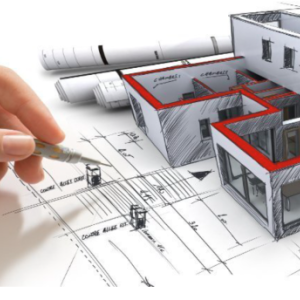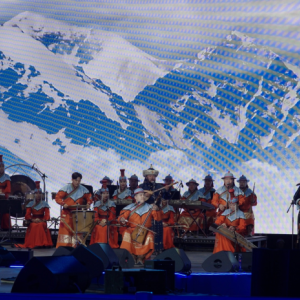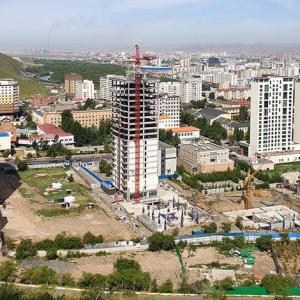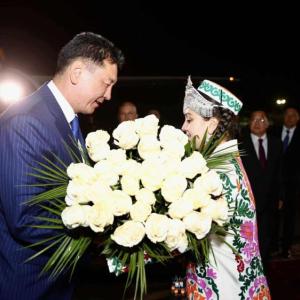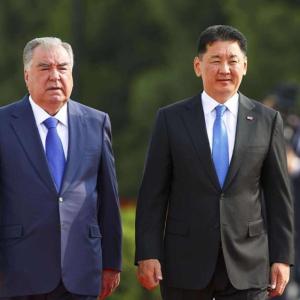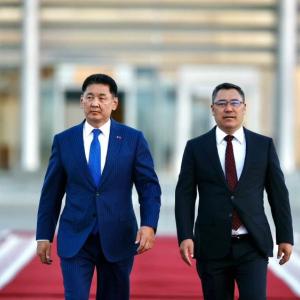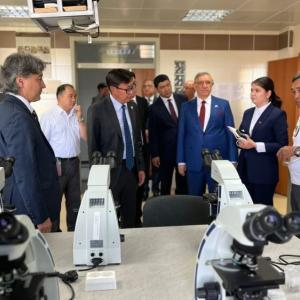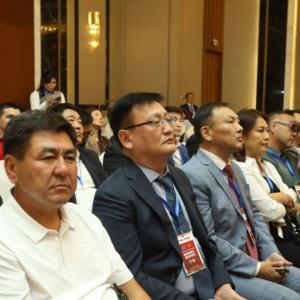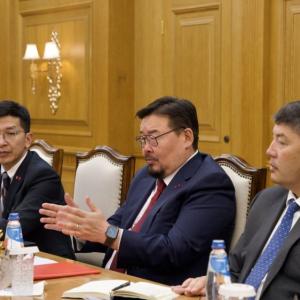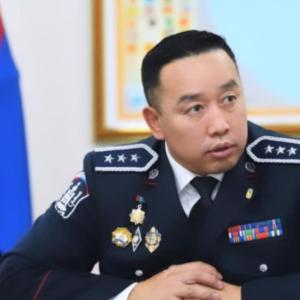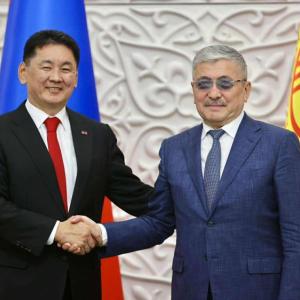National Forum Discusses Renewed National Commitment to Achieve SDGs
Society
Ulaanbaatar, September 7, 2023 /MONTSAME/. A National Forum for Sustainable Development involving high-level decision-makers, practitioners, and representatives of different stakeholders was jointly organized by the Ministry of Economy and Development of Mongolia and the UN Resident Coordinator's Office in Mongolia on September 7, 2023.
Mongolia will present its renewed National Commitment to accelerate its efforts to achieve SDGs by 2030 at the SDG Summit to be held on September 18-19, 2023, in the United Nations, New York.
Mongolia presented its first Voluntary National Review Report in 2019 and its second report to the UN General Assembly in July 2023. The second report showed progress in 15 of the 17 SDG indicators but a backward in the first goal, poverty reduction. Therefore, Mongolia is taking steps to address this issue and is committed to reducing poverty by 2030.
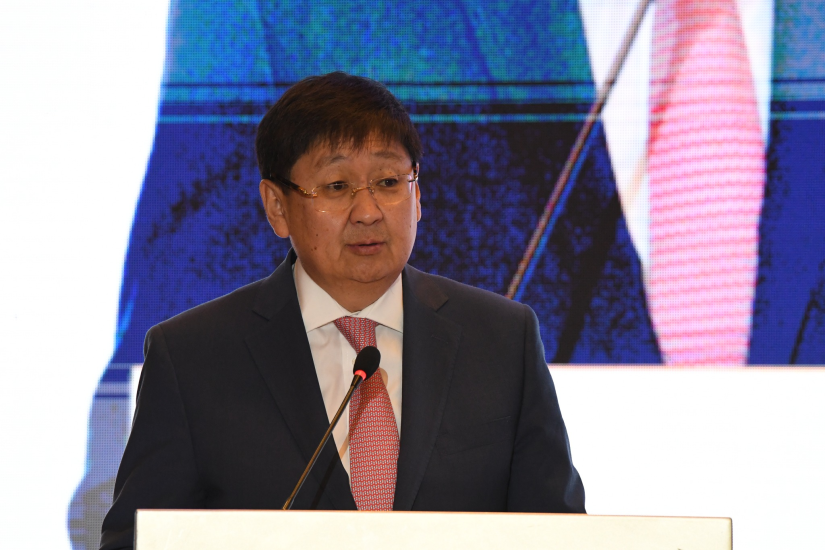
In his opening speech, Minister of Economy and Development Ch. Khurelbaatar said that the Government is consistently working to increase the economic growth, the basic pre-condition of the SDGs’ implementation, "Mongolia's economy shrunk by 4.6 percent due to the effects of the pandemic and international geopolitics, but in the last five consecutive quarters it has been growing, and increased by 6.4 percent. Inflation, which had reached 16.9 percent in June of the last year, dropped to 9.2 percent in July of this year. However, the implementation of the SDGs is slow. In the future, our economic growth will rise by increasing exports, improving the organization of border ports, and supporting the growth of transport following the mining sector. Since Mongolia has fully integrated the SDGs into the "Vision 2050" development policy document and in its mid-term goals, the SDGs will be undoubtedly implemented. We have prepared our report by ensuring the participation of many parties in the implementation of the priorities of the SDGs."
Economic Policy Adviser to the President of Mongolia B. Davaadalai delivered the President's message. "To attain the SDGs, Mongolia is implementing the national programs "Healthy Mongolian," "Food Supply and Safety," and "One Billion Trees" with the participation of the public and private sectors. Although environmental degradation, climate change, pandemics, and geopolitical conditions have been negatively impacting people's lives and the implementation of the SDGs, we are focused on radically improving our financial mechanisms. In terms of the deadline, 50 percent of the implementation of the SDGs 2030 Program is weak and 30 percent is frozen. As for our country, it is necessary to improve the investment and legal environment, enhance control, reporting, and financing, and make management and organizational reforms. We are also working to eliminate regional, urban, and rural disparities and provide basic social services to citizens equally. Therefore, cooperation and mutual understanding of multiple parties are of most importance."
Mongolia aims to reduce
poverty by 20 percent by 2025 and 15 percent by 2030. In this regard, the
Government of Mongolia has identified 12 accelerators for SDGs, drawn from the
national medium-term development policies, as well as extensive analytical
findings such as the Second National Voluntary Review of SDGs implementation in
Mongolia, presented at the UN High-level Political Forum in July 2023.
Director General of the Integrated Development Policy Department of the Ministry of Economy and Development of Mongolia L. Balchinluvsan introduced the identified accelerators in detail:
- Increase the quality and access of educational services, and prepare a workforce that meets market demand,
- Increase the quality, equity, and accessibility of health care and services,
- Achieve a complete digital transition through innovation, science, and technology,
- Ensure energy stability and reliability by creating basic conditions for the development of renewable energy,
- Mitigate and adapt to the negative effects of climate change: Ensure environmental sustainability and strengthen resilience to hazards and natural disasters,
- Enhance the food supply and security,
- Diversify economy through the development of value-added and sustainable production,
- Reduce unemployment and poverty by increasing decent work and inclusive jobs,
- Ensure gender equality,
- Foster effective governance and policy coherence,
- Support regional and local development,
- Boost financing aimed at accelerating the implementation of the SDGs.
These recommended accelerators are the results of extensive consultations with all stakeholders who represent development policymakers, decision-makers, and other development stakeholders.
Several national companies contributing to Mongolia's sustainable development efforts were present at the Forum, displaying their excellent initiatives and experiences in sustainable development.
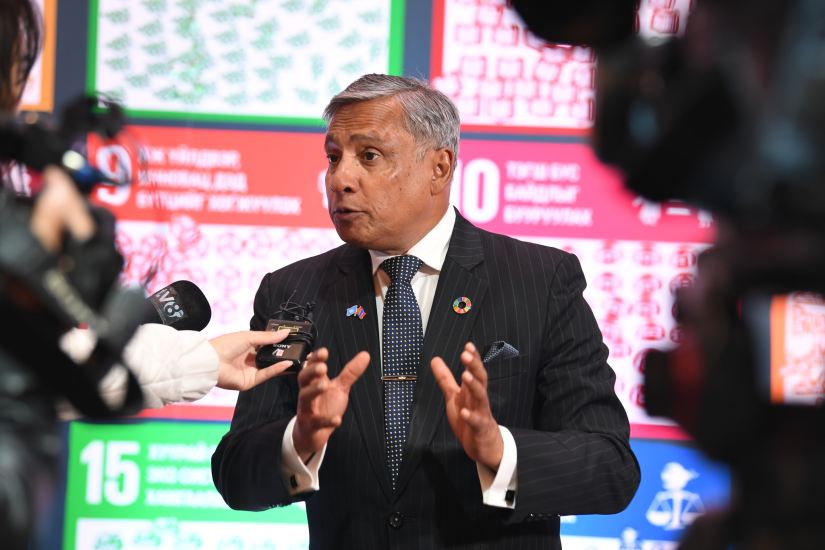
UN Resident Coordinator Tapan Mishra: Mongolia is one of the few countries who formulated its ambitious and comprehensive long-term development policy – Vision-2050. The 9 pillars articulated in the Vision-2050 underpinned broader development aspects which are perfectly aligned with the SDGs. In order to effectively achieve objectives of the Vision-2050, Mongolia needs to successfully meet the SDGs targets by 2030. In other words, achieving SDGs by 2030 will be the mid-way accomplishment for Vision-2050.
Mongolia prepared its second Voluntary National Review (VNR) 2023 and successfully presented it at the High-level Political Forum in July in New York. The VNR analyzed the progress, challenges, and opportunities for effective implementation of SDGs in Mongolia. At the current rate of progress, Mongolia’s performance in achieving poverty targets is regressing and disparities in various dimensions are widening.
I am particularly pleased that the Government of Mongolia recently reflected, 146 nationalized SDGs indicators and targets, out of 196, into the draft 10-years targeted programs. The MED is aiming for the draft programs soon to be submitted to Parliament and I am looking forward to the Parliament’s support in reviewing and adopting them during the upcoming sessions. Anchoring the nationalized SDG targets and indicators in the national development policies and programs, supported by adequate financial resources and monitoring mechanisms, is crucial for achieving the 2030 Agenda.
The MED was leading Mongolia’s preparation for the SDGs Summit identifying national accelerators for SDGs and preparation of the national commitment. This event represents an important milestone in discussing and reaffirming the stakeholder’s feedback on the draft national commitment and suggestions for the way forward. I am looking forward to interesting and substantive discussions today on Mongolia’s commitment to SDG Acceleration.
I would like to reaffirm the
UN’s continued commitment to partnering with stakeholders to support Mongolia
in implementing the SDGs Accelerators.

 Ulaanbaatar
Ulaanbaatar

